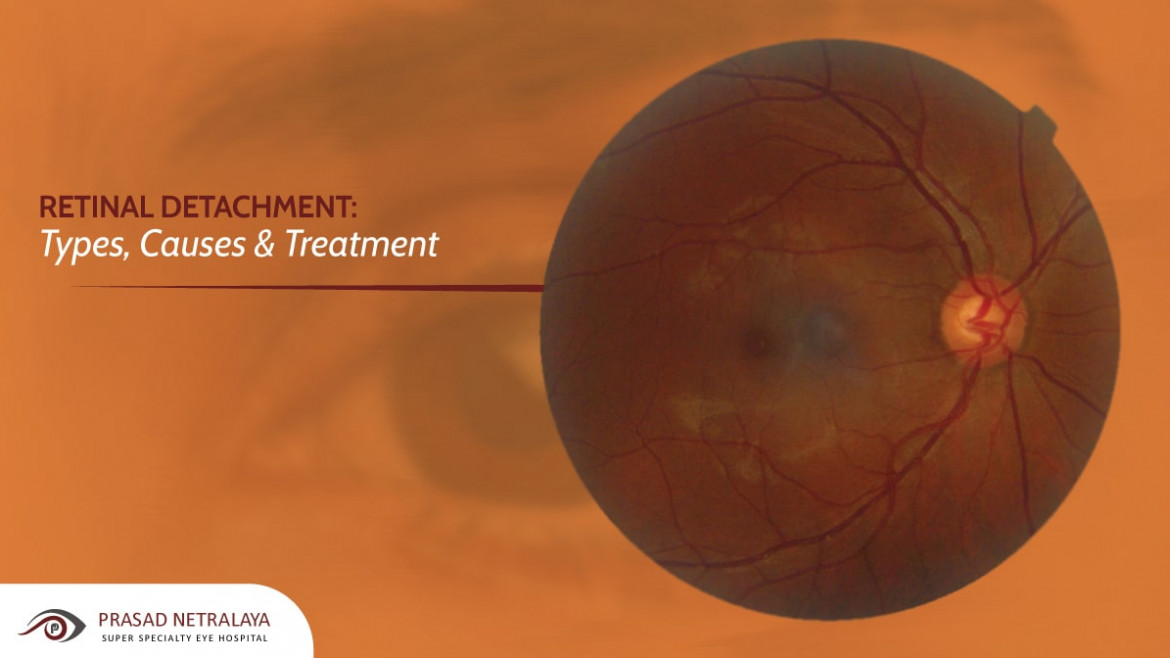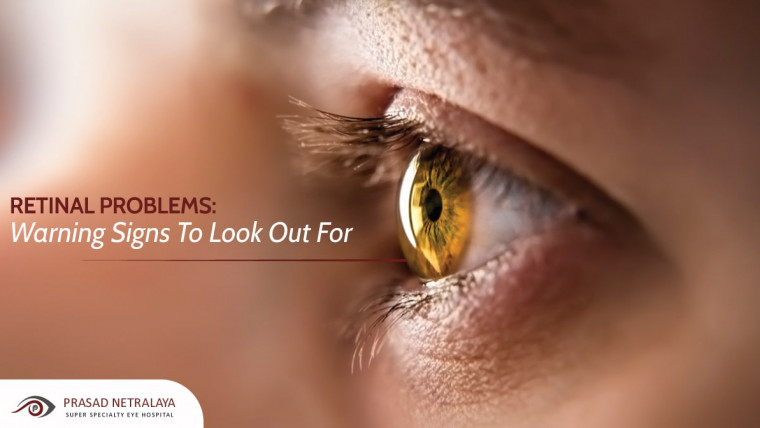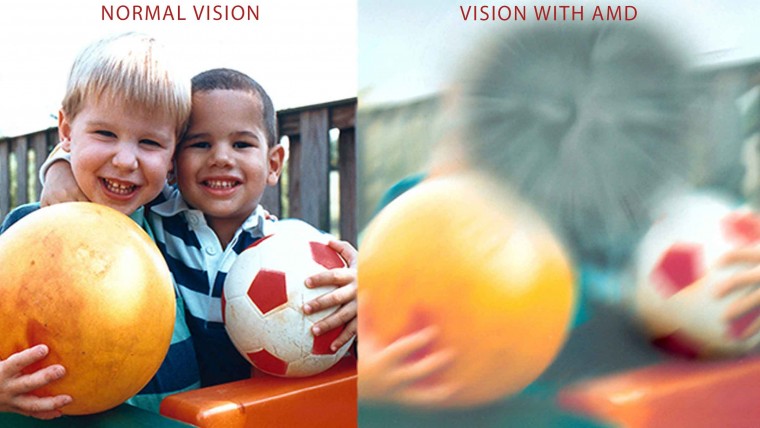The retina is a thin layer of tissue lining the back of the eye. Its function is to receive light that the lens of the eye has focused on, convert it into neural signals, and send them to the brain for visual recognition. The several layers of the retina have interconnected neurons for the same.
When the retina pulls away from its normal position and separates from the layer of blood vessels that provide it with oxygen and nutrients, it leads to an emergency situation called retinal detachment, also referred to as ‘detached retina’. This is a common retinal condition.
Table of Contents
Symptoms of Retinal Detachment
Signs of retinal detachment may include:
- Sudden floaters (small flecks or threads in your vision) or flashes of light
- A “curtain” of darkness over your vision
- Reduced or distorted vision
Types and Causes of Retinal Detachment
The most common causes of a detached retina are ageing and eye injury. There are 3 main types of retinal detachment:
- Rhegmatogenous: This type of detachment is the most common and is caused by a hole or tear in the retina. The area with the tear loses blood supply, causing one to lose vision in the area. The tear also allows fluid to pass through and collect underneath the retina, which in turn pulls the retina away from its underlying tissues. Also, if the vitreous — which is the gel-like material in the inside of your eye — passes through the tear to the space behind the retina, it might result in retinal detachment. Rhegmatogenous is largely associated with ageing, but one can also have it due to an eye injury or severe nearsightedness.
- Tractional: This type of detachment occurs when the retina pulls away from the back of the eye because of scar tissue growing on the retina’s surface. The scar tissue pulls on the retina. People with poorly controlled diabetes or other conditions may be at risk or experience Tractional Detachment.
- Exudative: This type of detachment happens when fluid builds up behind the retina, but there is no retina damage — no holes or tears in the retina. Conditions such as injury, inflammatory disorders, tumours or age-related macular degeneration are the common causes of Exudative Detachment.
Risk-increasing Factors of Retinal Detachment
Below are factors that increase the risk of developing a retinal detachment:
- Extreme nearsightedness (myopia)
- Ageing — people over the age of 50 have a higher risk of developing it
- Eye disease or disorder like retinoschisis, uveitis or thinning of the peripheral retina (lattice degeneration)
- Severe eye injury, or past injuries that haven’t been treated
Treatment of Retinal Detachment
A detached retina won’t heal on its own and medical attention is necessary. While retina transplant for the treatment of inherited retinal diseases has been widely researched about, retinal detachment can be treated with one or more of these procedures:
- Laser (photocoagulation) or freezing (cryopexy): Photocoagulation is a laser treatment where the laser shine makes small burns around the retina tear or hole, and these small burn scars fix the tear. Cryopexy involves freezing the layers of the eye — including the retina — by placing a very cold metal probe against its wall, resulting in an adhesive scar that seals the retina.
- Pneumatic retinopexy: This procedure is used for a small tear in the retina. The retina specialist injects a tiny gas bubble into the vitreous gel, that presses against the upper part of your retina and closes the tear.
- Vitrectomy: This surgery is the most effective for large tears or retinal detachment. The retina specialist removes the vitreous gel and replaces it with a gas bubble or oil.
- Scleral buckle: The retina specialist sews a silicone band (buckle) around the sclera, which is the white part of your eye — and this pushes the sclera towards the tear or detachment until it heals. The band is invisible.
It is important to note that in certain cases, you may need to have more than one procedure and it could take some months for your vision to return. The longer you leave it untreated, the more you put yourself under the risk of permanent vision loss.
If you are experiencing the signs of retinal detachment, avail a consultation to properly diagnose and treat any retinal problems at Prasad Netralaya — Mangalore and Udupi’s most trusted Eye Care Hospital. Our retina specialists are skilled and qualified in retinal conditions management and surgical correction of retinal problems. Call us at +91 9513596565 or book an appointment if you wish to visit in person.
Dr. Vikram Jain, M.S. had his medical training (MBBS) from Kasturba Medical College, Mangalore, India. He did his master’s in Ophthalmic surgery from Kasturba Medical College, Manipal. He currently manages the Glaucoma department of Prasad Netralaya hospital.



